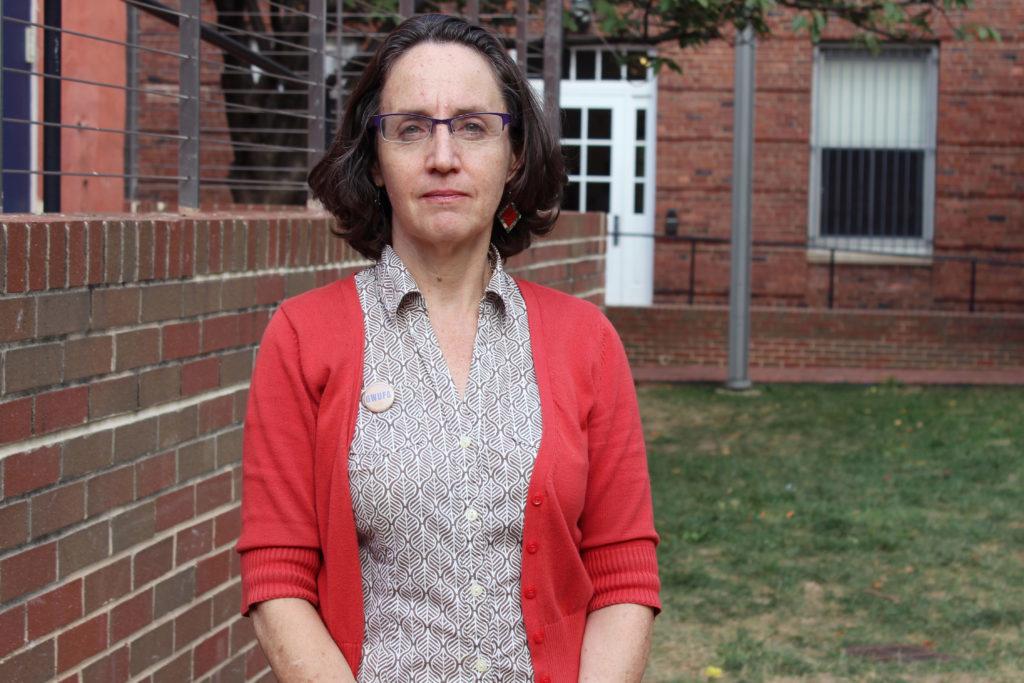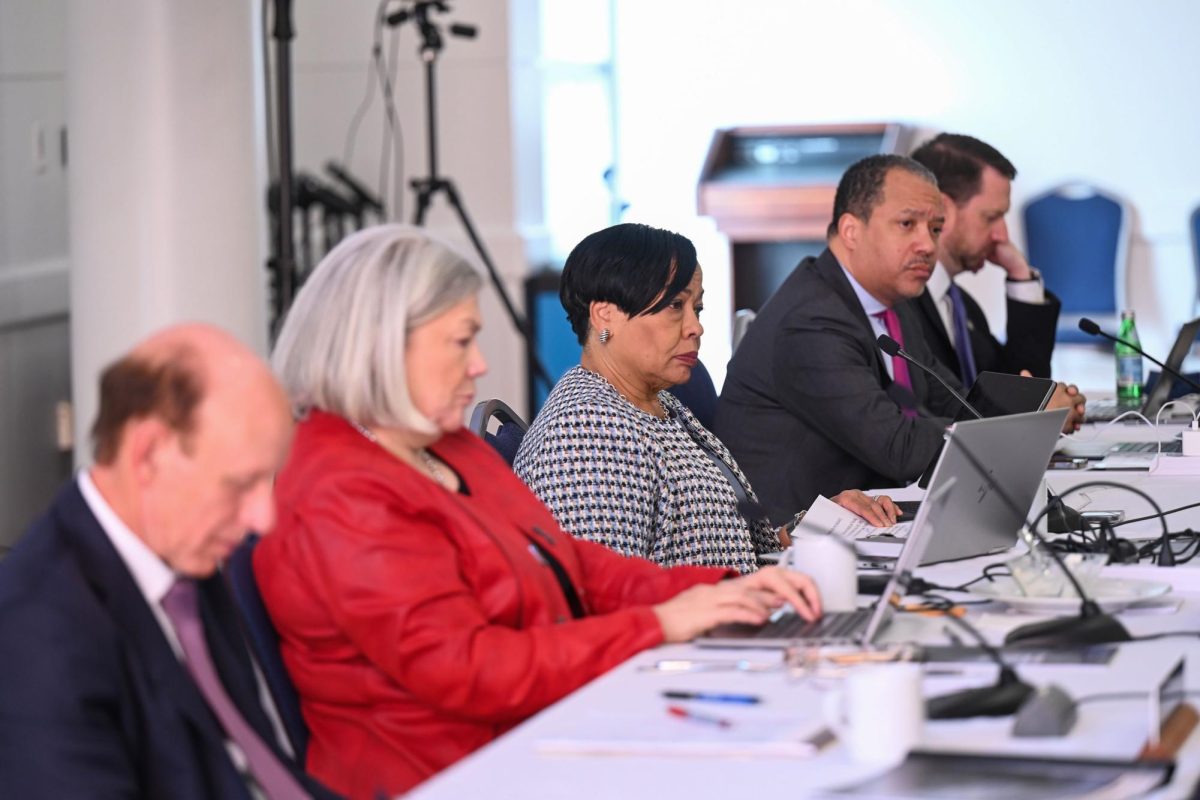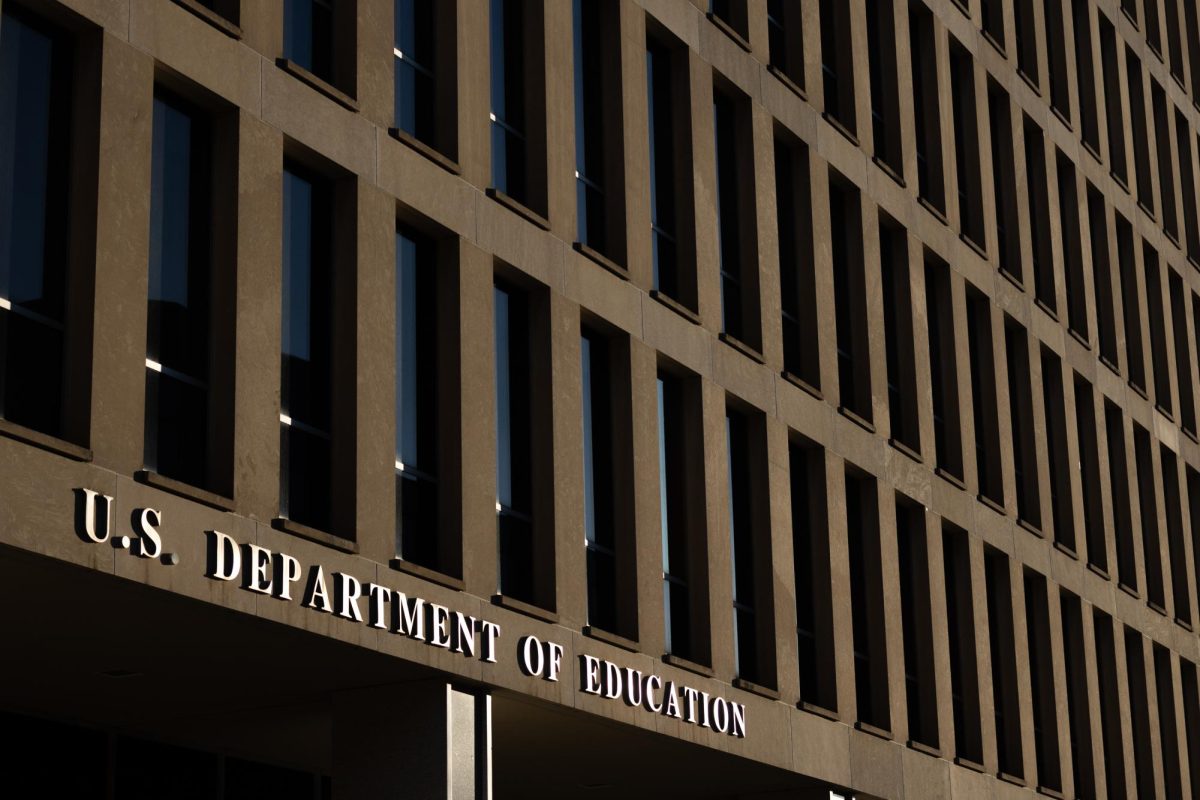Officials’ push to increase the number of STEM majors could mean “major” cuts in funding for non-STEM departments, humanities and social science, faculty said.
University President Thomas LeBlanc announced at a town hall earlier this month that he intends to increase the ratio of science, technology, engineering and math majors at GW from about 19 to 30 percent of the undergraduate population as the University rolls out its next five-year strategic plan. More than 10 liberal arts faculty said LeBlanc’s decision could strain budgets in non-STEM departments and impede progress on research projects.
LeBlanc said he aims to admit more STEM majors amid plans to cut undergraduate enrollment by 20 percent over the next five years. He said at a Faculty Senate meeting in March that GW still lags behind most private research universities in terms of its percentage of STEM students, falling at second to last behind Georgetown University.
“The world is changing and STEM is an accelerator,” LeBlanc said at a town hall meeting earlier this month. “We should all want every student at this University to have access to the skills necessary for the quantitative analysis of data using technology.”
Katrin Schultheiss, the chair of the history department, said she is “concerned” with LeBlanc’s twin goals of increasing the percentage of STEM majors and cutting the undergraduate population. She said the changes will necessitate reductions in funding for non-STEM departments and result in a “radical shifting of resources away from non-STEM fields.”
“If the new push for more STEM majors were coupled with a clear commitment to finding new sources of revenue to fund that initiative, I would be more supportive,” Schultheiss said in an email.
LeBlanc said in an interview earlier this month that while he does not want to make GW a competitor in STEM education on par with schools like the California Institute of Technology, he wants to bring the school more in line with its peers’ STEM-to-non-STEM ratios.
Schultheiss said LeBlanc’s focus on STEM through his strategic initiatives downplays the value of a humanities education at GW.
“Studying the humanities equips us to examine the world around us with a critical eye and to understand the place that we as individuals and as citizens play and have played in society,” she said. “Without such understanding, we cannot hope to change the world in ways that are truly meaningful.”
She said LeBlanc’s push is part of a broader decline in enrollment in humanities across many academic institutions as a result of STEM graduates generally earning higher incomes than non-STEM students.
“If you want to find something to blame for the declining fortunes of the humanities, look to broader trends in society that prioritize salaries, economic utility, tech-facilitated efficiency and social status,” she said.
Masha Belenky, an associate professor of French, said officials should continue to commit the same level of funding to departments that represent GW’s “traditional areas of strength” in the humanities and social sciences to preserve the academic programs that help GW stand out among other colleges.
She said officials should create a “clear plan” detailing how they intend to account for the reduction in enrollment and increase in the proportion of STEM majors so that non-STEM departments have enough resources.
“A great STEM school should have equally great humanities programs that foster critical thinking and historical and global perspective, skills and qualities that GW strives to foster in students,” she said in an email.
Joel Kuipers, the chair of the anthropology department and a professor of international affairs, said officials should include student voices in the decision-making process as officials prioritize STEM and cuts in enrollment. Incoming students in non-STEM schools could see their financial aid packages decrease over time, he said.
“Students are unaware of the impact on them, student scholarships specifically,” he said. “It will affect who we can attract.”
He said the increase in STEM majors will cause budget shortfalls for the University as a result of the increased cost of teaching STEM students, including lab costs and scholarships for first-generation students, many of whom pursue STEM majors and need “extra” financial support. The University’s external debt reached about the same level as its endowment for fiscal year 2018, according to a presentation at this month’s Faculty Senate meeting.
He said the move will necessitate budget cuts, and members of his department are concerned about what the cuts could mean for humanities enrollment and research. He did not specify whether he or members of his department have approached LeBlanc with their concerns.
“One of our biggest concerns about the budget cuts is that it will result in a reduction of scholarships for diverse students,” he said.
Melani McAlister, a professor of American studies and international affairs, said improving STEM literacy and programming is important for GW to remain a “top university” but cautioned against elevating STEM “at the expense of our well-established strengths.”
“My concern has to do with setting a very high goal for STEM undergraduate majors, without having the history, infrastructure or funding to support this unusual – and for us, unprecedented – switch in emphasis,” McAlister said in an email. “If President LeBlanc’s main goal is excellence, then we build on our strengths in the social sciences and humanities while also supporting STEM.”
McAlister said she is concerned with LeBlanc’s decision to cut undergraduate enrollment because fewer students paying tuition coupled with increasing STEM majors will reduce support for student aid, research and teaching for non-STEM fields.
“For the University to do that while it is also raising the number of STEM majors, who get a greater discount rate and whose departments are already subsidized by tuition dollars from other students – this is just deeply worrisome,” McAlister said.
McAlister said members of the GW community “deserve better than we are getting” in terms of information being passed down from the Office of the President and the Board of Trustees. She said officials need to hold more “serious and sustained” faculty consultations on how STEM programming decisions will affect the school as a whole before cuts and changes take place.
“Certainly many of us in the humanities and social sciences support STEM and want GW to do well in STEM,” she said. “But a major shift in our university’s identity and priorities is not a decision where we have had consultation or input.”
Elizabeth Bolaji, Jared Gans and Latasha Seow contributed reporting.











